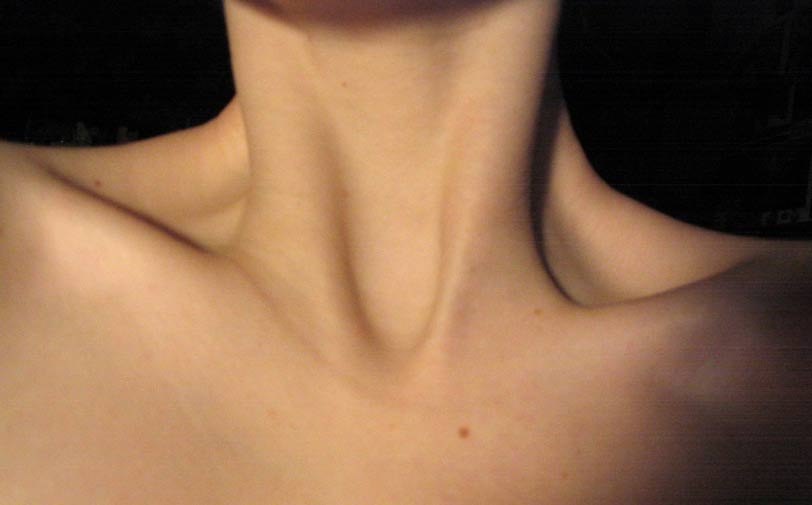What Is Hyperthyroidism ?
Hyperthyroidism is a condition where the thyroid gland is overactive and produces too much of the thyroid hormones, T3 and T4 and is more common in women than men. Overall, 2% of women will experience some kind of hyperthyroidism in their lifetime, which is often diagnosed by a blood test. The results will show high levels of thyroid hormones, T3 and T4, and low levels of thyroid stimulating hormone (TSH).
Signs and symptoms of hyperthyroidism are:
- Unexplained weight loss
- Sweating
- Heart palpitations
- Tachycardia (fast heart rate)
- Sensitive to hot temperatures
- Muscle weakness
- Menstrual irregularities
- Diarrhoea
- Difficulty sleeping
Causes
There are many causes for hyperthyroidism. The most common cause is Graves’ disease. Graves’ disease is an autoimmune disorder in which antibodies are produced against the TSH receptor. The antibodies act like TSH; they stimulate the receptor and cause the thyroid gland to produce T3 and T4 in excess. Comparatively, Hashimoto’s thyroiditis has the opposite effect, it is an autoimmune disease where antibodies bind to the TSH receptor and inhibit it; leading to hypothyroidism. Graves’ disease patients tend to develop goitres, which are visible swellings of the thyroid gland in the neck. They also develop a number of eye-related issues; the eyes of Graves’ disease patients tend to bulge and become highly inflamed. The upper eyelids are often retracted, and it may be difficult for the individual to close their eyes.
In addition, nodules are lumps, which form within the thyroid due to an abnormal growth of thyroid tissue. The majority of nodules are benign; however, some nodules may be malignant. If the nodule contains cells that are capable of producing thyroid hormones, the nodule will lead to hyperthyroidism. Although, not all nodules lead to hyperthyroidism. Thyroiditis is another cause of hyperthyroidism; it is an inflammation of the thyroid tissue.
Treatment
- Medication
- Radioiodine
- Surgery
Medication for hyperthyroidism
Hyperthyroidism can be treated with medications, with surgery or with radiotherapy. Medications for hyperthyroidism inhibit the synthesis of T3 and T4 in the thyroid gland. These medications are a long-term form of treatment, and may take up to 6 weeks to work effectively, due to the large amounts of thyroid hormones in the system. They need to be used carefully during pregnancy because they can cross the placenta, and may also produce hypothyroidism in the foetus.
Side effects of drugs for hyperthyroidism include:
- The most common side effects are rash and peripheral neuritis.
- Loss of appetite
- Itchiness
- Rashes
- Vomiting and Nausea
- The most dangerous side-effect of anti-thyroid medication is agranulocytosis. This is an idiosyncratic reaction which generally resolves on cessation of drug. It occurs in about 0.2 to 0.3% of cases treated with antithyroid drugs.
- Other side effects include granulocytopenia (dose dependent, which improves on cessation of the drug) and aplastic anemia, and for propylthiouracil severe, fulminant liver failure.
- Patients on these medications should see a doctor if they develop sore throat or fever.hese drugs also cross the placenta and are secreted in breast milk.
Surgery for hyperthyroidism
Surgery for hyperthyroidism involves removing part or all of the thyroid gland. Surgery is effective in patients with Graves’ disease. Prior to surgery, patients take iodine and anti-thyroid drugs to help stabilise the gland’s secretions, and to reduce the vascularity of the thyroid. It is not uncommon for one to suffer hypothyroidism after thyroid surgery, especially if the entire gland is removed. Patients would need to take thyroid hormone replacement therapy following the operation.
Radioiodine
A third treatment option is radiotherapy using radioactive iodine. Iodine is specifically taken up by the thyroid gland meaning that other cells in the body will be unaffected. The radioactive iodine kills the cells in the thyroid, and is excreted in the urine. The iodine has a half-life of 8 days, it is advised that patients avoid or limit contact with other people during this time period, especially children and pregnant women. It is important to remember that patients may develop hypothyroidism following radiotherapy. In this situation thyroid hormone replacement would be needed.
If you have questions or concerns about hyperthyroidism or thyroid problems make an appointment to see our thyroid surgeon.

